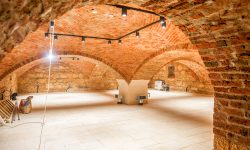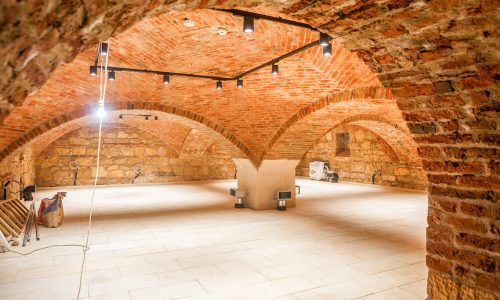Romania is known for its remarkably high home ownership rates, a fact that might initially seem to indicate widespread prosperity. However, beneath this surface achievement lies a complex and growing problem. In cities like Cluj-Napoca, renowned for its vibrant culture, top universities, and tech industry, the reality of finding affordable rental housing is becoming increasingly difficult for many.
The roots of Romania's high home ownership can be traced back to the 1990s, following the fall of communism. During this period, the government allowed people to buy their state-owned homes at very low prices, or even handed them over for free. This move was meant to jump-start the transition to a market economy but has led to long-term impacts on the housing market. While it has resulted in a high percentage of homeowners, it has also contributed to a rental market that struggles to meet the demand in urban areas, particularly in Cluj-Napoca.
Today, Cluj-Napoca is facing a sharp rise in rental prices. A small studio apartment can cost around €350 a month, while a bigger place can reach over €700. Amid this escalating scenario, the local populace feels the pinch as rents climb relentlessly. “Rent becomes a luxury for many Romanians, with prices almost 20% higher than last year. Cluj has the highest rates, driven by strong demand,” underscores the situation's urgency. This rise in prices has forced some residents to consider additional employment or seek shared accommodations to cope. “In Cluj, you need to have two jobs; that's the only way, unfortunately,” a local explains, highlighting the strain on personal finances and living standards.
The influx of foreign individuals, perceiving Cluj-Napoca as comparatively affordable, further exacerbates the situation. Wesley Shamulenge, a real estate agent here in Cluj-Napoca, acknowledges the upward trend in an article published on Digi24: “You can feel a difference, it is not very big, I say they have increased and it is felt somewhere at 9% for studios and 2-3 rooms with 17%. That's about the percentage of change compared to last year.”
This indicates a significant shift, setting the stage for a continuously tightening market where demand consistently outstrips supply, pushing many to the brink of their financial limits.
International Influx and Housing Affordability
Adding to Cluj-Napoca's housing challenge is the city's growing appeal to international students, professionals, and expats. For many from wealthier countries, Cluj's cost of living feels relatively low, making the city an attractive destination. This perception, however, further strains the local rental market. As demand from abroad increases, rental prices rise, making it even harder for local residents to find affordable housing. This influx from overseas can often lead to a situation where the local population is priced out of prime living spaces, as landlords target the more lucrative market of foreign renters. Addressing this aspect of Cluj-Napoca's housing dilemma will be essential in maintaining the city's inclusivity and accessibility for all its residents.
The rental market is further strained by properties owned by Romanians who have moved abroad for work. Many of these owners set rental prices based on their perceptions of affordability, which are often out of sync with the local economic reality. This discrepancy leads to inflated rental costs, widening the gap between homeownership and rental affordability.
Despite the pride in homeownership, for many Romanians, particularly the younger generation, this does not equate to wealth or financial security. The inheritance of property has become a double-edged sword, offering a place to live but also limiting mobility and options for affordable living spaces, especially for those not fortunate enough to inherit property themselves.
As Cluj-Napoca continues to attract newcomers with its opportunities and lifestyle, the pressure on the housing market intensifies. This influx of students, professionals, and families seeking a piece of the city's prosperity is met with a finite number of available and affordable rental properties, exacerbating the housing dilemma.
Experts warn that without significant policy changes or interventions to increase the supply of affordable housing, the gap between the dream of living in Cluj-Napoca and the reality of its cost will only widen. The city's allure remains strong, but for those looking to make a life here, the challenge of finding a place to call home at a reasonable price is becoming a more prominent part of the story.
A Resident's Perspective
Amidst the backdrop of Cluj-Napoca's rising rental market, a poignant account on Stiri de Cluj from a former resident who moved to Romania's capital reveals the depth of the city's affordability crisis. He compares Cluj-Napoca with Zalău in terms of offerings, noting, “I lived in Cluj-Napoca for 10 years, and in the last two, I seriously pondered whether to leave due to escalating living costs. Until 2019, I loved everything about Cluj. Beyond the rent, life was quality. Salaries were low, as always, but living costs were manageable.”
However, inflation changed everything. “Prices skyrocketed unrealistically, manipulated by those exploiting the situation under the guise of inflation, because yes, the country is full of unquestioning people. While prices soared, salaries barely increased by 10%-15%, signaling it was time to leave,” he reflects.
In Bucharest, he finds city life equally expensive but slightly better in terms of rent. He contrasts his current 33 square meter studio in Bucharest, costing 1200 RON and better equipped, with what he would pay in Cluj — 1700 RON for a less equipped, 22 square meter space.
His experience culminates in a stark warning for those considering their future in Cluj-Napoca. “If you don't have business ties, a property binding you (arguable if you earn more elsewhere even after rent), are not a student, weren’t born/raised here (also debatable), then there's no reason to stay. The unbearable traffic, pollution from a lack of trees, and the discomfort of navigating narrow sidewalks make even a relaxing walk intolerable.”
“Cluj has become, perhaps, the biggest illusion in the country,” he declares, criticising the false narrative of superiority over Bucharest based on high rents and prices but significantly lower salaries. “I struggled for three months with interviews for a decent salary in Cluj with no luck. In contrast, applications sent half-heartedly to Bucharest jobs offered more than my target salary in Cluj. Even if I had always had an apartment there, moving from Cluj would have been more beneficial.”
He concludes with a powerful message: “Cluj is a five-star city when it takes from you, but when it gives back, it becomes Zalău. People are fooled by a nicely wrapped package, believing in its value, but inside, there's nothing. It has become a big illusion, probably the biggest in the country.”
For those considering moving to Cluj-Napoca, or for residents feeling the pinch, the current housing market serves as a cautionary tale. The city, while offering much in terms of culture, education, and career opportunities, also presents a significant challenge in terms of housing affordability. As Romania grapples with these growing pains, the hope is that solutions can be found to ensure that Cluj-Napoca remains a welcoming place for all, not just those who can afford the rising cost of living.



